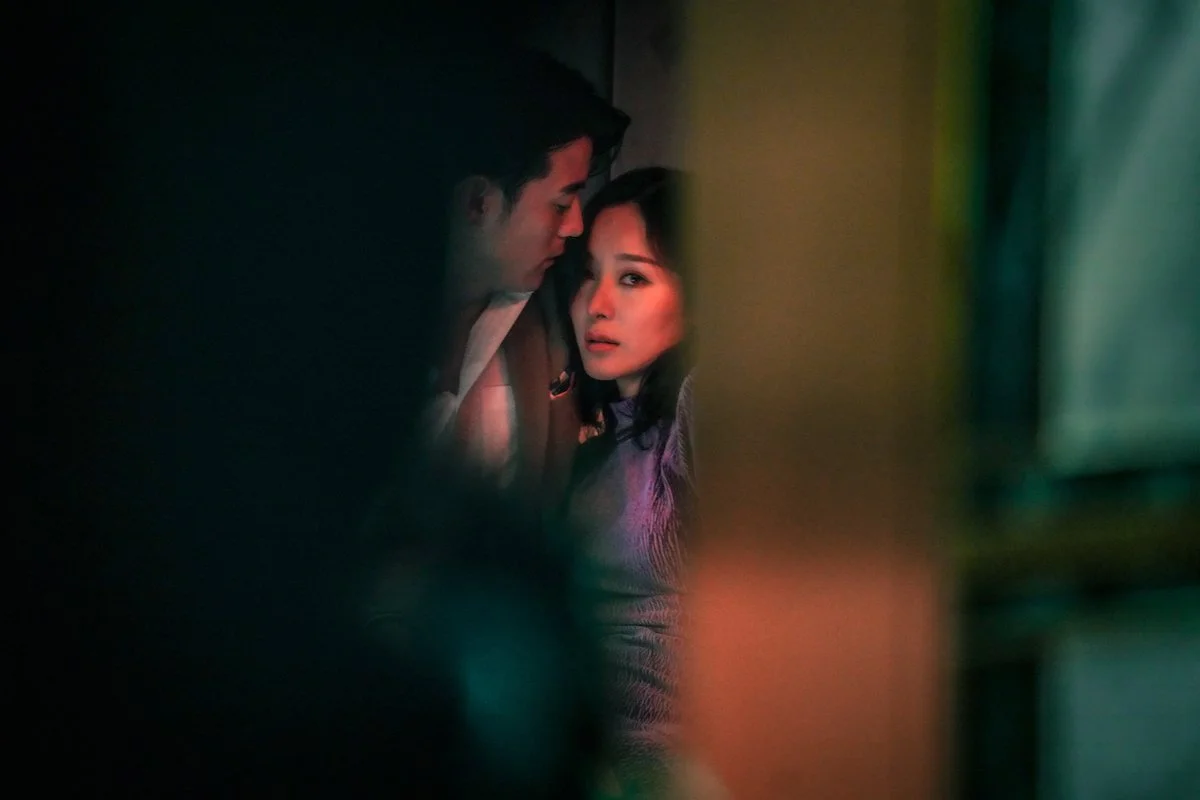Anti-‘Social’
Mis-titled and misguided, ‘Social Distancing’ is a messy follow-up to director Gilitte Leung’s promising debut.
Social Distancing
Director: Gilitte Leung • Writer: Gilitte Leung, Momo Wu
Starring: Angus Yeung, Gladys Li, Jeana Ho, Mimi Kung, Kevin Chu, Max Cheung, Zeno Koo, Paco Wong
Hong Kong • 1hr 38mins
Opens Hong Kong May 11 • IIB
Grade: C-
Social Distancing | 電子靈 is dark. I don’t mean content-wise. I mean visually, literally dark. In the climactic set piece of Gilitte Leung Bik-chi’s first film since her surprising LGBTQ+ romance Love Me Not back in 2012, Cherry (singer Gladys Li Ching-kwan, looking confused a lot) is a budding YouTuber being haunted by an e-ghost, picked up through an app. She got it off a phone (by AirDrop?) that belonged to a dead guy she unboxed on her dumb channel to boost numbers. Cherry’s been a YouTuber since returning to Hong Kong after the streaming suicide of her friend Lisa (Jeana Ho Pui-yu, Breakout Brothers), who got caught up in an online rape ring. She kind of knew what was happening, but did nothing to stop it for fear of blowing Lisa’s chance at becoming a K-pop star. You read that right.
That tone deaf inciting incident right there, loosely based on Korea’s Nth Room arrests from 2020, tells you all you need to know about just how messy Leung’s boneheaded digital horror film is, despite burying some clever ideas deep, deep, deep down. For some unfathomable reason, Social Distancing – which is a terrible title and the Cantonese “electronic ghost” is much more on point – managed to get a slot at blue chip genre festivals Bifan and Sitges, so hopes are high due to its pedigreed stamp of approval. In the end it’s more of a riff on Ring and It Follows, with some junk like Nerve and Countdown thrown in, laced with clumsy messaging about paying attention to your mother and the inherent isolation of screen-based life as compounded by COVID. Yes, those ol’ tropes again.
Still gripped by guilt for allowing Lisa’s sexual assault (ya think?), Cherry’s living at her family home at the onset of COVID, doing her YouTube thing and ignoring her clearly depressed mother (Septet’s Mimi Kung Chi-yan), who eventually checks herself into a warehouse facility/Penny’s Bay knock-off, and her introverted, clearly troubled brother Seven (Zeno Koo Ting-hin, Cyber Heist), who’s some kind of computer genius. At some point everyone goes missing, so Cherry and her chemistry-free boyfriend Sean (Angus Yeung Tin-yue, Detective vs Sleuths) go looking for them, as well as the secret of the E-Ghost. Or something.
By the time the action gets to that final set piece in the industrial building, essentially a combination of an escape room and a quest-based video game shot in near pitch blackness, Social Distancing has disintegrated into a series of strikingly composed head-scratching theatrical moments. Not since The X-Files has the beam of a Maglite had so much screen time. But why is Sean even here if the app/game told Cherry she needed to finish the quest alone? And where did this quest come from? How did she know to go to this building? When did Seven vanish? Did I fall asleep at some point?
Though the film’s thick of the pandemic production is crystal clear, the kernel of a compelling film resides somewhere in Social Distancing’s foundations, though it feels like the road to Cherry’s reconciliation of her own failings and guilt regarding her actions (or inaction) is interminable. That’s mostly due to a gawdawful, conflicting, graceless script that leaves you exhausted rather than contemplative. Leung’s ironic look at the how the tech that has entrenched solitude is the same one that kept us sane during imposed isolation is a valid and thought-provoking idea, as is the e-ghost as symbolic of the scads of data – our data – that floats around us, haunting us at all times. But the storytelling clangs so hard, lurching to its finale (come on, no one stands like that on a Hong Kong street), that it’s hard to give a shit about any of it. Dull characters with little in the way of rootability don’t help.
Now, there are some inspired visuals in the film, particularly the flashes where Cherry’s phone camera autofocuses on something we can’t see in a dark hallway behind her. It’s a genuinely chilling image and an entirely contemporary build-up to a jump scare. But those are few and far between, and in the end Social Distancing simply spends too much of its time in the dark – literally and figuratively. — DEK



